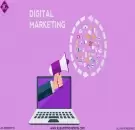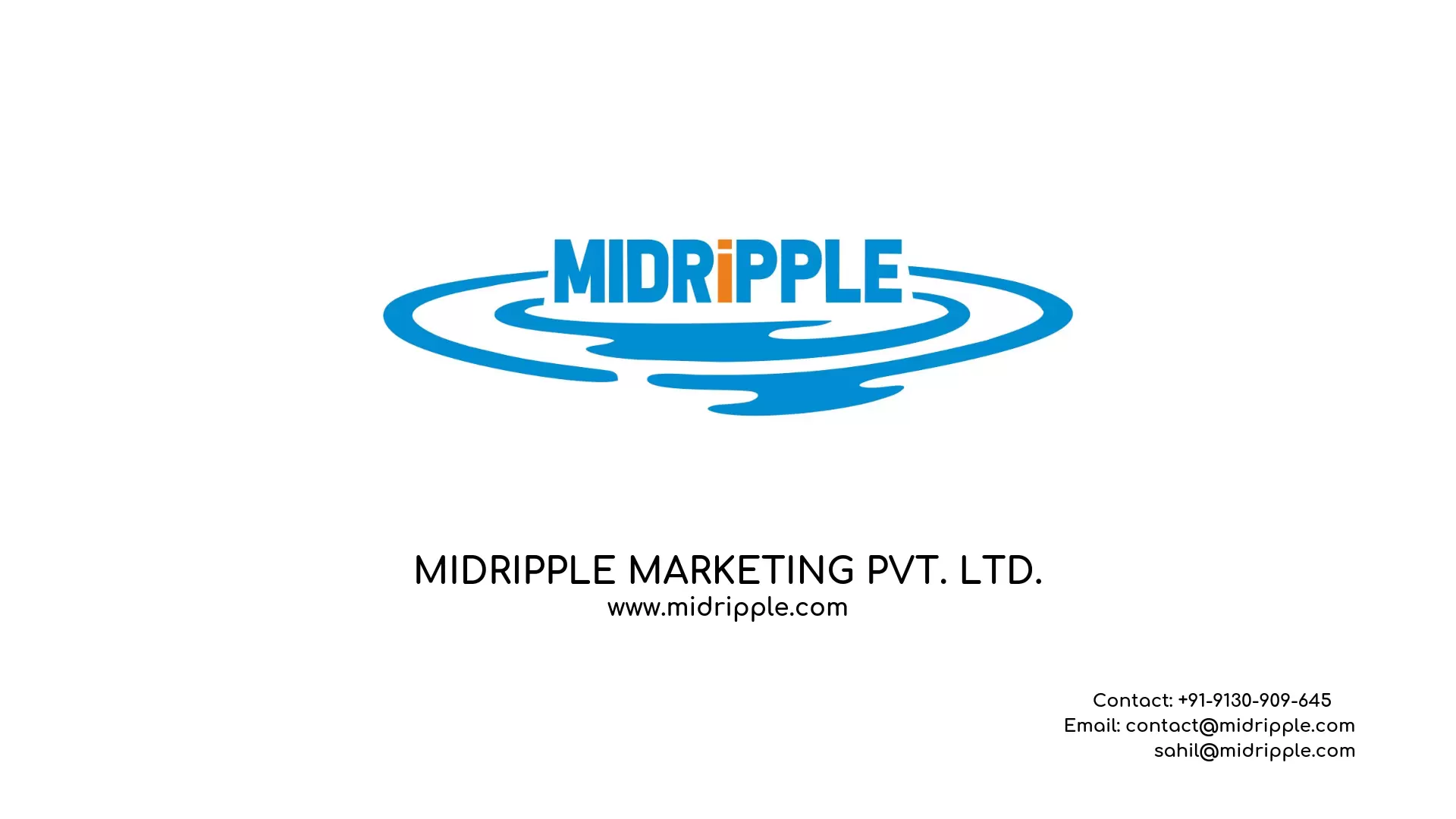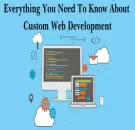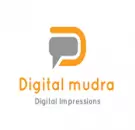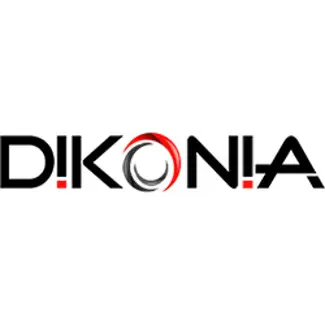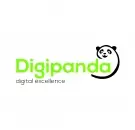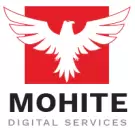
Unveiling the Power of #Digital Marketing: A Comprehensive Exploration In the rapidly evolving landscape of business, where traditional methods are gradually making way for more dynamic and efficient strategies, digital marketing stands out as a pivotal player. In this article, we will delve into the multifaceted realm of digital marketing, exploring its various aspects and unraveling the key benefits it brings to the forefront. Understanding Digital Marketing: A Holistic Approach Digital marketing encompasses a spectrum of online strategies aimed at promoting products, services, or brands through various digital channels. This includes search engines, social media, email, websites, and mobile apps. The overarching goal is to connect with a target audience, foster engagement, and convert leads into loyal customers. Let's break down the essential components of digital marketing: 1. Search Engine Optimization ( #SEO): Elevating Visibility At the core of digital marketing is SEO, a strategy that involves optimizing online content to improve its search engine ranking. By incorporating relevant keywords, enhancing website structure, and generating high-quality content, businesses can increase their visibility on search engines like Google. This visibility boost translates to organic traffic, providing a solid foundation for digital marketing success. 2. #Social Media Marketing: Building a Digital Persona Social media platforms have become the modern marketplace, and businesses are leveraging this space to build brand identity, engage with customers, and promote products or services. Through targeted advertising and regular interaction, social media marketing fosters a sense of community and brand loyalty. 3. #ContentMarketing: Storytelling for Success Content is the cornerstone of digital marketing. Whether it's blog posts, videos, infographics, or podcasts, compelling content not only attracts but also educates and retains the audience. Content marketing establishes a brand as an authority in its industry, fostering trust and credibility. 4. #EmailMarketing: Direct Connection with the Audience Email marketing remains a potent tool for nurturing leads and maintaining customer relationships. Through personalized and targeted email campaigns, businesses can deliver tailored content, promotions, and updates directly to their audience's inbox. 5. #Pay-Per-Click (PPC) Advertising: Precision in Marketing Spending #PPCadvertising allows businesses to place ads on search engines and other platforms and pay a fee each time their ad is clicked. This model ensures that marketing spending is directly tied to user engagement, making it a cost-effective and measurable way to drive traffic and conversions. 6. Analytics and Data Insights: Informed Decision-Making One of the unparalleled advantages of digital marketing is the ability to collect and analyze vast amounts of data. From website traffic and user behavior to social media engagement, businesses can gather insights that inform strategic decisions. Analytics tools empower marketers to refine their campaigns, optimize content, and tailor strategies based on real-time feedback. Key Benefits of Digital Marketing: A Game-Changer for Businesses 1. Global Reach and Accessibility Digital marketing transcends geographical boundaries, allowing businesses to reach a global audience. Whether you are a small local business or a multinational corporation, the internet provides a platform for equal visibility and accessibility. This democratization of reach is a game-changer, particularly for small businesses aiming to compete on a larger scale. 2. Cost-Effectiveness and ROI Compared to traditional marketing methods, digital marketing often proves to be more cost-effective. With tools like PPC advertising, businesses can control their spending and target specific demographics, ensuring that resources are allocated efficiently. Additionally, the ability to track and measure the ROI of digital marketing campaigns provides transparency and accountability. 3. Real-Time Engagement and Interaction Digital marketing facilitates real-time communication with the audience. Social media comments, live chats, and instant messaging enable businesses to engage with customers promptly. This not only builds trust but also allows for quick problem resolution and the cultivation of a positive brand image. 4. Targeted Advertising and Personalization Through data analytics, businesses can understand their audience's preferences, behaviors, and demographics. This knowledge enables targeted advertising, ensuring that promotional content reaches the most relevant audience. Personalization, whether in email marketing or website content, enhances the user experience and increases the likelihood of conversions. 5. Scalability and Flexibility Digital marketing strategies are highly scalable, making them suitable for businesses of all sizes. Whether you're a startup with a limited budget or an established corporation, you can tailor your digital marketing efforts to match your goals and resources. The flexibility of digital marketing allows for quick adjustments and experimentation to find the most effective strategies. 6. Measurable Results and Data-Driven Decision Making Unlike traditional marketing, where measuring the success of a campaign can be challenging, digital marketing provides a wealth of data. From website analytics to social media metrics, businesses can measure the performance of their campaigns in real-time. This data-driven approach allows for continuous improvement, as marketers can refine strategies based on what works best. Embracing the Digital Future Digital marketing is not just a trend; it's a transformative force reshaping how businesses connect with their audience. By embracing the diverse facets of digital marketing, from SEO to social media, businesses can position themselves for success in an increasingly competitive digital landscape. The benefits, ranging from global reach to real-time engagement and measurable results, underscore the importance of making digital marketing an integral part of any comprehensive business strategy. As we navigate the digital future, businesses that harness the power of digital marketing will find themselves not only surviving but thriving in the ever-evolving marketplace.
Unveiling the Power of #Digital Marketing: A Comprehensive Exploration In the rapidly evolving landscape of business, where traditional methods are gradually making way for more dynamic and efficient strategies, digital marketing stands out as a pivotal player. In this article, we will delve into the multifaceted realm of digital marketing, exploring its various aspects and unraveling the key benefits it brings to the forefront. Understanding Digital Marketing: A Holistic Approach Digital marketing encompasses a spectrum of online strategies aimed at promoting products, services, or brands through various digital channels. This includes search engines, social media, email, websites, and mobile apps. The overarching goal is to connect with a target audience, foster engagement, and convert leads into loyal customers. Let's break down the essential components of digital marketing: 1. Search Engine Optimization ( #SEO): Elevating Visibility At the core of digital marketing is SEO, a strategy that involves optimizing online content to improve its search engine ranking. By incorporating relevant keywords, enhancing website structure, and generating high-quality content, businesses can increase their visibility on search engines like Google. This visibility boost translates to organic traffic, providing a solid foundation for digital marketing success. 2. #Social Media Marketing: Building a Digital Persona Social media platforms have become the modern marketplace, and businesses are leveraging this space to build brand identity, engage with customers, and promote products or services. Through targeted advertising and regular interaction, social media marketing fosters a sense of community and brand loyalty. 3. #ContentMarketing: Storytelling for Success Content is the cornerstone of digital marketing. Whether it's blog posts, videos, infographics, or podcasts, compelling content not only attracts but also educates and retains the audience. Content marketing establishes a brand as an authority in its industry, fostering trust and credibility. 4. #EmailMarketing: Direct Connection with the Audience Email marketing remains a potent tool for nurturing leads and maintaining customer relationships. Through personalized and targeted email campaigns, businesses can deliver tailored content, promotions, and updates directly to their audience's inbox. 5. #Pay-Per-Click (PPC) Advertising: Precision in Marketing Spending #PPCadvertising allows businesses to place ads on search engines and other platforms and pay a fee each time their ad is clicked. This model ensures that marketing spending is directly tied to user engagement, making it a cost-effective and measurable way to drive traffic and conversions. 6. Analytics and Data Insights: Informed Decision-Making One of the unparalleled advantages of digital marketing is the ability to collect and analyze vast amounts of data. From website traffic and user behavior to social media engagement, businesses can gather insights that inform strategic decisions. Analytics tools empower marketers to refine their campaigns, optimize content, and tailor strategies based on real-time feedback. Key Benefits of Digital Marketing: A Game-Changer for Businesses 1. Global Reach and Accessibility Digital marketing transcends geographical boundaries, allowing businesses to reach a global audience. Whether you are a small local business or a multinational corporation, the internet provides a platform for equal visibility and accessibility. This democratization of reach is a game-changer, particularly for small businesses aiming to compete on a larger scale. 2. Cost-Effectiveness and ROI Compared to traditional marketing methods, digital marketing often proves to be more cost-effective. With tools like PPC advertising, businesses can control their spending and target specific demographics, ensuring that resources are allocated efficiently. Additionally, the ability to track and measure the ROI of digital marketing campaigns provides transparency and accountability. 3. Real-Time Engagement and Interaction Digital marketing facilitates real-time communication with the audience. Social media comments, live chats, and instant messaging enable businesses to engage with customers promptly. This not only builds trust but also allows for quick problem resolution and the cultivation of a positive brand image. 4. Targeted Advertising and Personalization Through data analytics, businesses can understand their audience's preferences, behaviors, and demographics. This knowledge enables targeted advertising, ensuring that promotional content reaches the most relevant audience. Personalization, whether in email marketing or website content, enhances the user experience and increases the likelihood of conversions. 5. Scalability and Flexibility Digital marketing strategies are highly scalable, making them suitable for businesses of all sizes. Whether you're a startup with a limited budget or an established corporation, you can tailor your digital marketing efforts to match your goals and resources. The flexibility of digital marketing allows for quick adjustments and experimentation to find the most effective strategies. 6. Measurable Results and Data-Driven Decision Making Unlike traditional marketing, where measuring the success of a campaign can be challenging, digital marketing provides a wealth of data. From website analytics to social media metrics, businesses can measure the performance of their campaigns in real-time. This data-driven approach allows for continuous improvement, as marketers can refine strategies based on what works best. Embracing the Digital Future Digital marketing is not just a trend; it's a transformative force reshaping how businesses connect with their audience. By embracing the diverse facets of digital marketing, from SEO to social media, businesses can position themselves for success in an increasingly competitive digital landscape. The benefits, ranging from global reach to real-time engagement and measurable results, underscore the importance of making digital marketing an integral part of any comprehensive business strategy. As we navigate the digital future, businesses that harness the power of digital marketing will find themselves not only surviving but thriving in the ever-evolving marketplace.



















